Premium Only Content
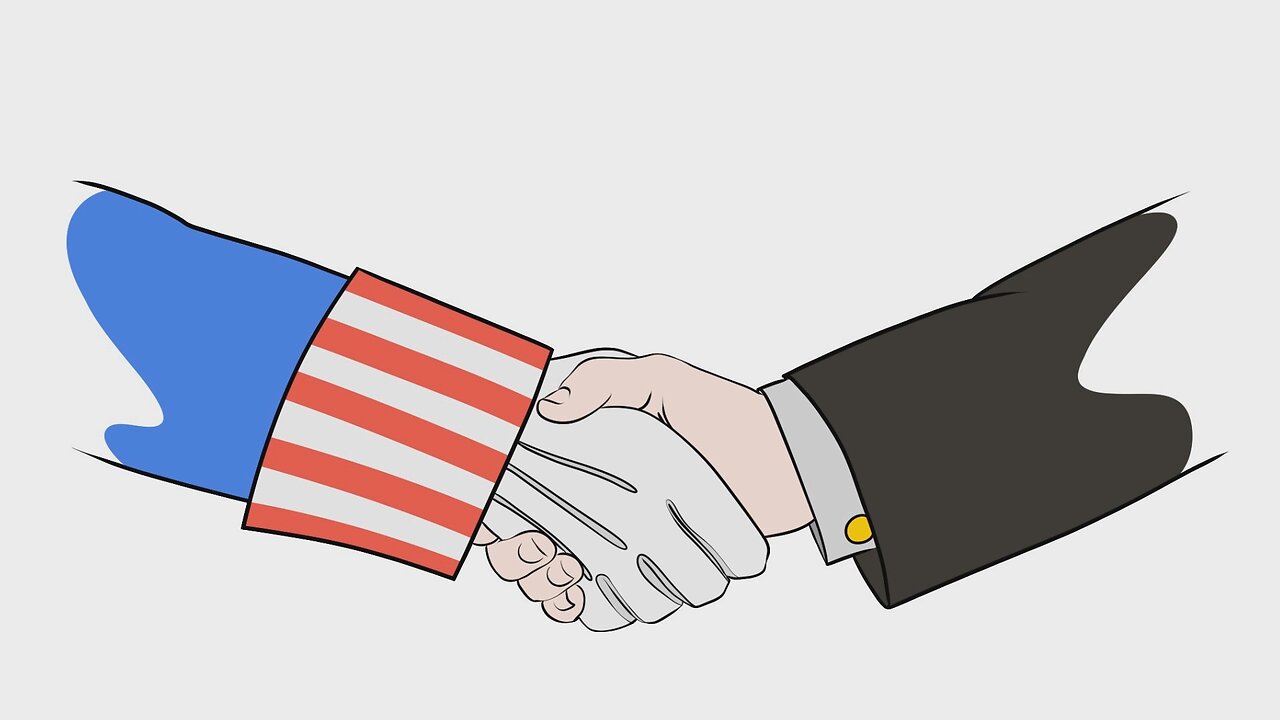
Nationalism
“I would welcome almost any war,” Teddy Roosevelt confided to a friend in 1897, “for I think this country needs one.”
Roosevelt believed Americans were becoming spoiled by peace and prosperity. “No triumph of peace is quite so great as the supreme triumphs of war,” he insisted. “The fight well fought [and] death bravely met count for more in building a fine type of temper in a nation than prosperity in commerce.”
Roosevelt celebrated the conquest of the West, but victory was bittersweet. Frontier warfare had shaped the national character, and Roosevelt worried it would be destroyed by modern luxuries. But when he read Alfred Mahan’s The Influence of Sea Power upon History, Roosevelt found a new frontier.
Mahan’s book argued that national wealth depended on overseas trade. Great nations, therefore, required vast navies with overseas supply stations. The US had traditionally docked ships in friendly ports, but in the event of war, the country would need to control strategic locations overseas.
When Spain’s colonies began revolting, Roosevelt convinced President William McKinley to station the USS Maine near Cuba to protect American interests. After an explosion left 268 sailors dead, Roosevelt blamed Spanish treachery. Sensationalist newspapers spread his narrative, spurring support for war until McKinley relented. The four-month conflict ended with America acquiring the Spain’s colonies, of Guam, Puerto Rico, and the Philippines, as spoils of victory.
The Spanish-American War was a contest between two empires and began with colonial uprisings. Yet in a way, all parties fought for the same cause.
The nineteenth century was shaped by the emergence of a new ideology known as nationalism. A nation is a group of people with a common cultural identity, usually based on shared language, beliefs, and heritage. Nationalism contends that the nation should correspond with the state—the centralized political organization of territory.
Nation-states began to gradually replace empires as colonies demanded independence. But political leaders often view independence movements as threats to national unity. Cuban and Spanish nationalism clashed over Cuban secession.
A similar sentiment motivated America’s involvement in the war. Proponents saw its potential in uniting a nation that had remained divided since the Civil War. They invoked cherished American values, promising liberty for Spain’s colonies—a promise they quickly broke.
Just as modern US maps reserve the left corner for Alaska and Hawaii, early twentieth-century maps depicted America’s overseas territories, such as Cuba, the Philippines, and Puerto Rico. One book of maps claimed, “The term ‘United States’ has ceased to be an accurate description of the countries over which the Stars and Stripes float. It applies merely to the central dominating body, the seat of empire.”
The Spanish-American War made the US an empire by any definition. And just as medieval empires allied with the corporate church, America’s national empire would ally with modern business corporations.
______________________________________
Want to learn more?
For more animated content, check out Economics for Beginners at https://BeginEconomics.org.
Check out the latest Mises Wire articles on foreign policy and war: https://mises.org/topics/war-and-foreign-policy
Anatomy of the State by Murray Rothbard is a great mini-book on the true nature of the state: https://mises.org/anatomy
The Betrayal of the American Right by Murray Rothbard focuses on the history of the modern conservative movement, and the role it played in aggressively escalating America's foreign policy in the 20th century: https://mises.org/betrayal
Wall Street, Banks, and American Foreign Policy by Murray Rothbard is a fiery monograph that employs "power elite" analysis to understand the relationship between money, power, and war: https://mises.org/library/wall-street-banks-and-american-foreign-policy-0
A Century of War: Lincoln, Wilson and Roosevelt by John V. Denson is an extensive look at how the twentieth century became the bloodiest in all history: https://mises.org/library/century-war-lincoln-wilson-and-roosevelt-0
A Foreign Policy of Freedom by Ron Paul offers a positive view for an American foreign policy would look like if it stayed true to its founding principles: https://mises.org/library/foreign-policy-freedom
-
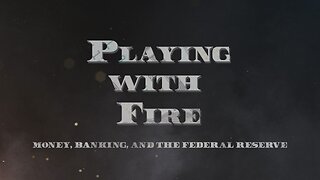 39:01
39:01
Mises Institute
2 months ago $0.40 earnedPlaying with Fire: Money, Banking, and the Federal Reserve
4563 -
 LIVE
LIVE
The Dilley Show
1 hour agoTrump Conquering Western Hemisphere? w/Author Brenden Dilley 12/23/2024
3,572 watching -
 DVR
DVR
Geeks + Gamers
2 hours agoSonic 3 DESTROYS Mufasa And Disney, Naughty Dog Actress SLAMS Gamers Over Intergalactic
5.65K1 -
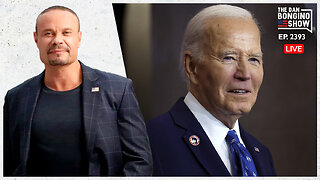 51:59
51:59
The Dan Bongino Show
3 hours agoDemocrat Donor Admits The Scary Truth (Ep. 2393) - 12/23/2024
399K724 -
 2:32:15
2:32:15
Matt Kohrs
14 hours agoRumble CEO Chris Pavlovski Talks $775M Tether Partnership || The MK Show
74.9K17 -
 28:23
28:23
Dave Portnoy
14 hours agoDavey Day Trader Presented by Kraken - December 23, 2024
78.4K31 -
 59:29
59:29
BonginoReport
5 hours agoTrump, Murder Plots, and the Christmas Miracle: Evita + Jack Posobiec (Ep.110) - 12/23/2024
87.5K66 -
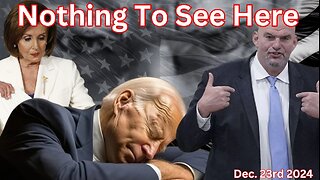 2:59:14
2:59:14
Wendy Bell Radio
7 hours agoNothing To See Here
65.2K43 -
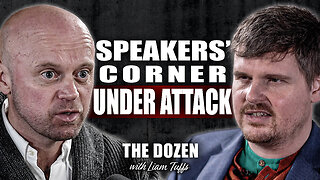 2:12:18
2:12:18
TheDozenPodcast
23 hours agoIslam vs Christianity: Bob of Speakers' Corner
66.2K16 -
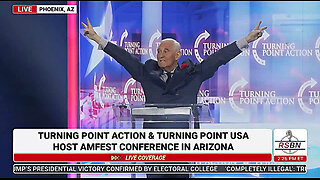 14:36
14:36
The StoneZONE with Roger Stone
1 day agoRoger Stone Delivers Riveting Speech at Turning Point’s AMFEST 2024 | FULL SPEECH
94.4K25